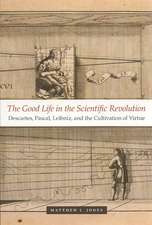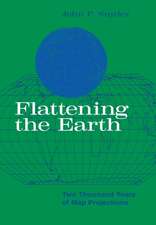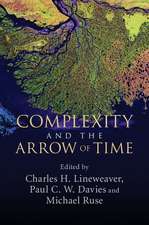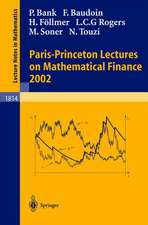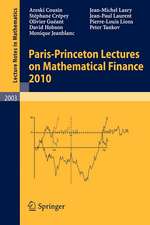The Best of All Possible Worlds: Mathematics and Destiny
Autor Ivar Ekelanden Limba Engleză Paperback – 31 oct 2007
Optimists believe this is the best of all possible worlds. And pessimists fear that might really be the case. But what is the best of all possible worlds? How do we define it? Is it the world that operates the most efficiently? Or the one in which most people are comfortable and content? Questions such as these have preoccupied philosophers and theologians for ages, but there was a time, during the seventeenth and eighteenth centuries, when scientists and mathematicians felt they could provide the answer.
This book is their story. Ivar Ekeland here takes the reader on a journey through scientific attempts to envision the best of all possible worlds. He begins with the French physicist Maupertuis, whose least action principle asserted that everything in nature occurs in the way that requires the least possible action. This idea, Ekeland shows, was a pivotal breakthrough in mathematics, because it was the first expression of the concept of optimization, or the creation of systems that are the most efficient or functional. Although the least action principle was later elaborated on and overshadowed by the theories of Leonhard Euler and Gottfried Leibniz, the concept of optimization that emerged from it is an important one that touches virtually every scientific discipline today.
Tracing the profound impact of optimization and the unexpected ways in which it has influenced the study of mathematics, biology, economics, and even politics, Ekeland reveals throughout how the idea of optimization has driven some of our greatest intellectual breakthroughs. The result is a dazzling display of erudition—one that will be essential reading for popular-science buffs and historians of science alike.
This book is their story. Ivar Ekeland here takes the reader on a journey through scientific attempts to envision the best of all possible worlds. He begins with the French physicist Maupertuis, whose least action principle asserted that everything in nature occurs in the way that requires the least possible action. This idea, Ekeland shows, was a pivotal breakthrough in mathematics, because it was the first expression of the concept of optimization, or the creation of systems that are the most efficient or functional. Although the least action principle was later elaborated on and overshadowed by the theories of Leonhard Euler and Gottfried Leibniz, the concept of optimization that emerged from it is an important one that touches virtually every scientific discipline today.
Tracing the profound impact of optimization and the unexpected ways in which it has influenced the study of mathematics, biology, economics, and even politics, Ekeland reveals throughout how the idea of optimization has driven some of our greatest intellectual breakthroughs. The result is a dazzling display of erudition—one that will be essential reading for popular-science buffs and historians of science alike.
Preț: 140.62 lei
Nou
Puncte Express: 211
Preț estimativ în valută:
26.91€ • 27.76$ • 22.45£
26.91€ • 27.76$ • 22.45£
Carte tipărită la comandă
Livrare economică 26 martie-09 aprilie
Preluare comenzi: 021 569.72.76
Specificații
ISBN-13: 9780226199955
ISBN-10: 0226199959
Pagini: 214
Ilustrații: 9 halftones, 11 line drawings
Dimensiuni: 152 x 229 x 20 mm
Greutate: 0.36 kg
Editura: University of Chicago Press
Colecția University of Chicago Press
ISBN-10: 0226199959
Pagini: 214
Ilustrații: 9 halftones, 11 line drawings
Dimensiuni: 152 x 229 x 20 mm
Greutate: 0.36 kg
Editura: University of Chicago Press
Colecția University of Chicago Press
Notă biografică
Ivar Ekeland is professor of mathematics and economics at the University of British Columbia and director of the Pacific Institute for Mathematical Sciences. He is the author of several books, including Mathematics and the Unexpected and The Broken Dice, both published by the University of Chicago Press.
Cuprins
Introduction
1. Keeping the Beat
2. The Birth of Modern Science
3. The Least Action Principle
4. From Computations to Geometry
5. Poincaré and Beyond
6. Pandora's Box
7. May the Best One Win
8. The End of Nature
9. The Common Good
10. A Personal Conclusion
Appendix 1. Finding the Second Diameter of a Convex Table
Appendix 2. The Stationary Action Principle for General Systems
Bibliographical Notes
Index
1. Keeping the Beat
2. The Birth of Modern Science
3. The Least Action Principle
4. From Computations to Geometry
5. Poincaré and Beyond
6. Pandora's Box
7. May the Best One Win
8. The End of Nature
9. The Common Good
10. A Personal Conclusion
Appendix 1. Finding the Second Diameter of a Convex Table
Appendix 2. The Stationary Action Principle for General Systems
Bibliographical Notes
Index










